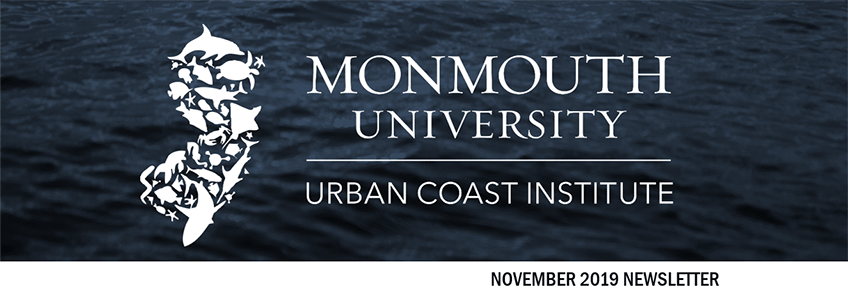
Full Coverage: The 15th Annual Future of the Ocean Symposium and Champion of the Ocean Awards Luncheon
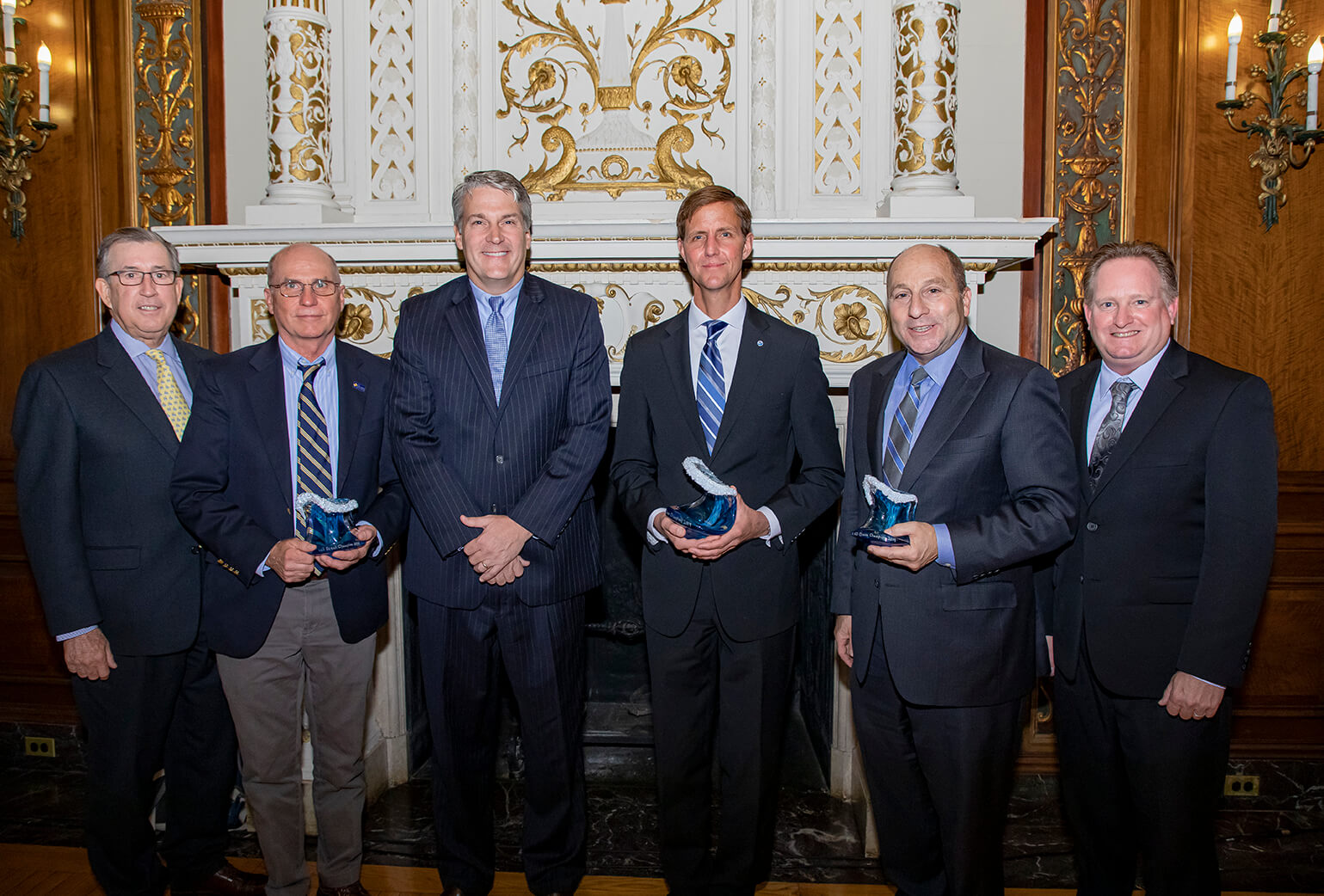
You can now watch videos from the UCI’s 15th Annual Future of the Ocean Symposium and Champion of the Ocean Awards Luncheon online on our event homepage. With a theme of “An Ocean for All: Ecosystems, Economies & People,” the Oct. 22 symposium gathered nationally recognized experts to share insights on the future use and conservation of our oceans, including how science and technology can inform our choices.
At the luncheon, the UCI presented its highest honor, the National Champion of the Ocean Award, to Rear Admiral Timothy Gallaudet, deputy administrator of the National Oceanic and Atmospheric Administration; the Regional Champion of the Ocean Award to Bradley Campbell, Conservation Law Foundation president; and the Coastal and Ocean Leadership Award to Scott Glenn, distinguished professor in the Rutgers University Department of Marine and Coastal Sciences and co-director of the Center for Ocean Observing Leadership.
Additional Links
The Results Are In: Season 1 of Coastal Lakes Water Quality Sampling
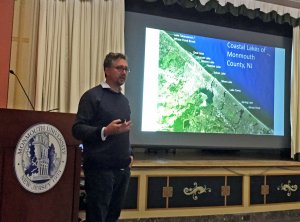 Citizen scientists, New Jersey Department of Environmental Protection (NJDEP) representatives, and Monmouth University researchers who’ve been participating in the Coastal Lakes Observing Network (CLONet) gathered at a UCI-hosted workshop Nov. 1 to discuss their initial findings and experiences. From June through September, the community volunteers collected more than 150 water samples from Deal Lake, Lake Como, Lake Takanassee, Spring Lake, Sunset Lake, Sylvan Lake and Wesley Lake, recording information such as water temperatures, dissolved oxygen levels, pH and weather conditions at the time of their sampling.
Citizen scientists, New Jersey Department of Environmental Protection (NJDEP) representatives, and Monmouth University researchers who’ve been participating in the Coastal Lakes Observing Network (CLONet) gathered at a UCI-hosted workshop Nov. 1 to discuss their initial findings and experiences. From June through September, the community volunteers collected more than 150 water samples from Deal Lake, Lake Como, Lake Takanassee, Spring Lake, Sunset Lake, Sylvan Lake and Wesley Lake, recording information such as water temperatures, dissolved oxygen levels, pH and weather conditions at the time of their sampling.
The goal of CLONet is to help solve environmental problems facing these lakes, such as harmful algal blooms (HABs), by building a better understanding of their root causes. Monmouth University staff and students trained the community members to use sampling kits and file their results through an online database, where each lake’s data could be analyzed and compared.
If four months of placing the lakes under a microscope has taught Endowed Associate Professor of Marine Science Jason Adolf one thing, it’s this: “A coastal lake is not a coastal lake is not a coastal lake.” Although they’re all small water bodies next to Monmouth County beaches, Adolf found their physical makeups and dynamics to be surprisingly different.
The following are a handful of results from the first season of sampling that were revealed at the workshop.
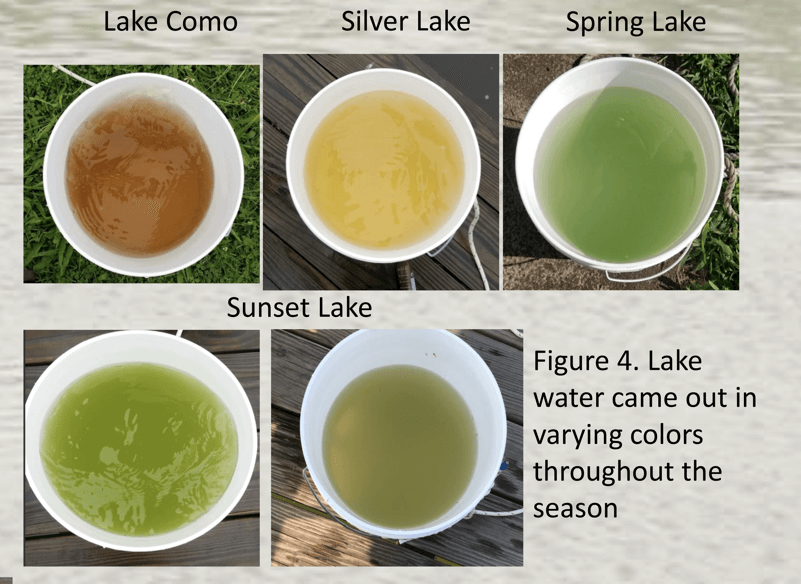
Water colors varied widely from lake to lake. Colors can be influenced by a wide range of factors, including plankton living in the waters and the sediments found on the bottom. Adolf said they can also be indicators of HAB presence.
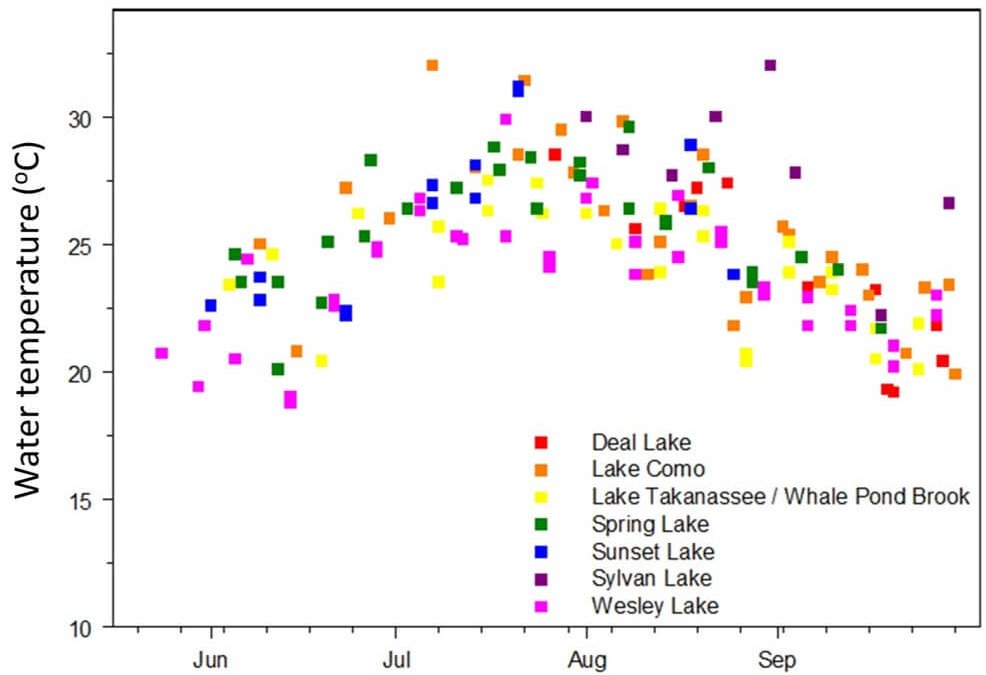
There were significant differences in lake temperatures, too. Overall, the waters were found to be warm, a favorable condition for HABs. Adolf found Deal Lake’s temperatures were 5-10 degrees Celsius higher than data recorded in the summer of 1978. He said climate change could not account for a gulf that wide, and speculated that a change in depth over the decades could be responsible.
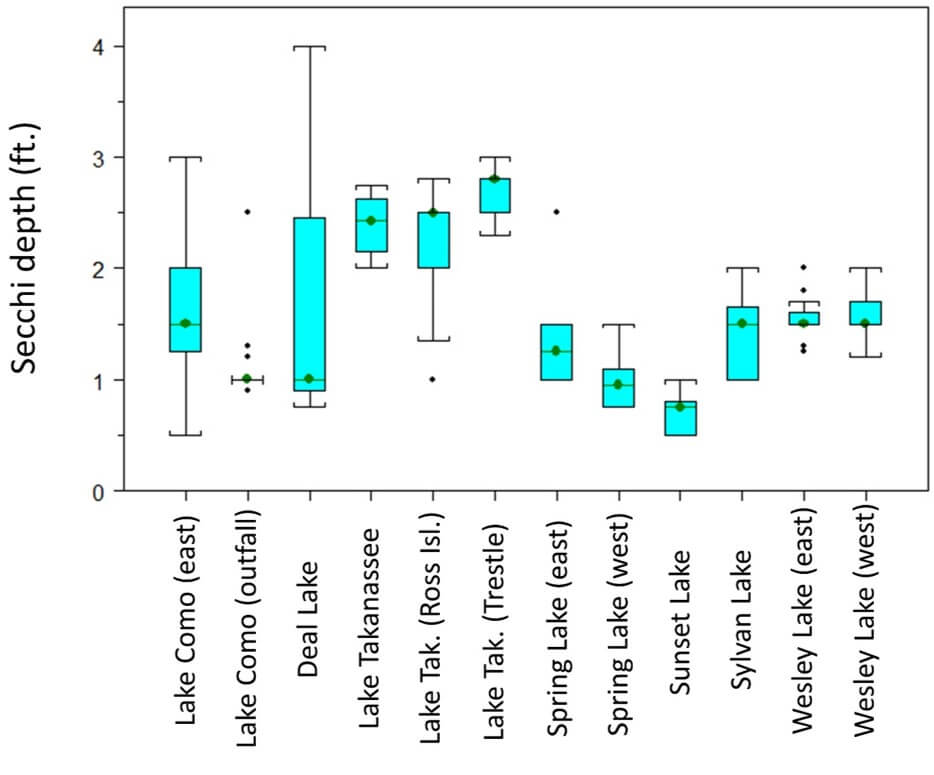
The waters were murky. A lake’s clarity (turbidity) can be measured using a piece of equipment called a Secchi disk. The black and white disc is slowly lowered into the water, and when it is no longer visible, the CLONet participants recorded the depth. Sunset Lake, Deal Lake and portions of Lake Como and Spring Lake were among those found to have mean Secchi depths in the range of 1 foot or lower. Low Secchi depth during sampling was found to be a strong indicator of HAB abundance.
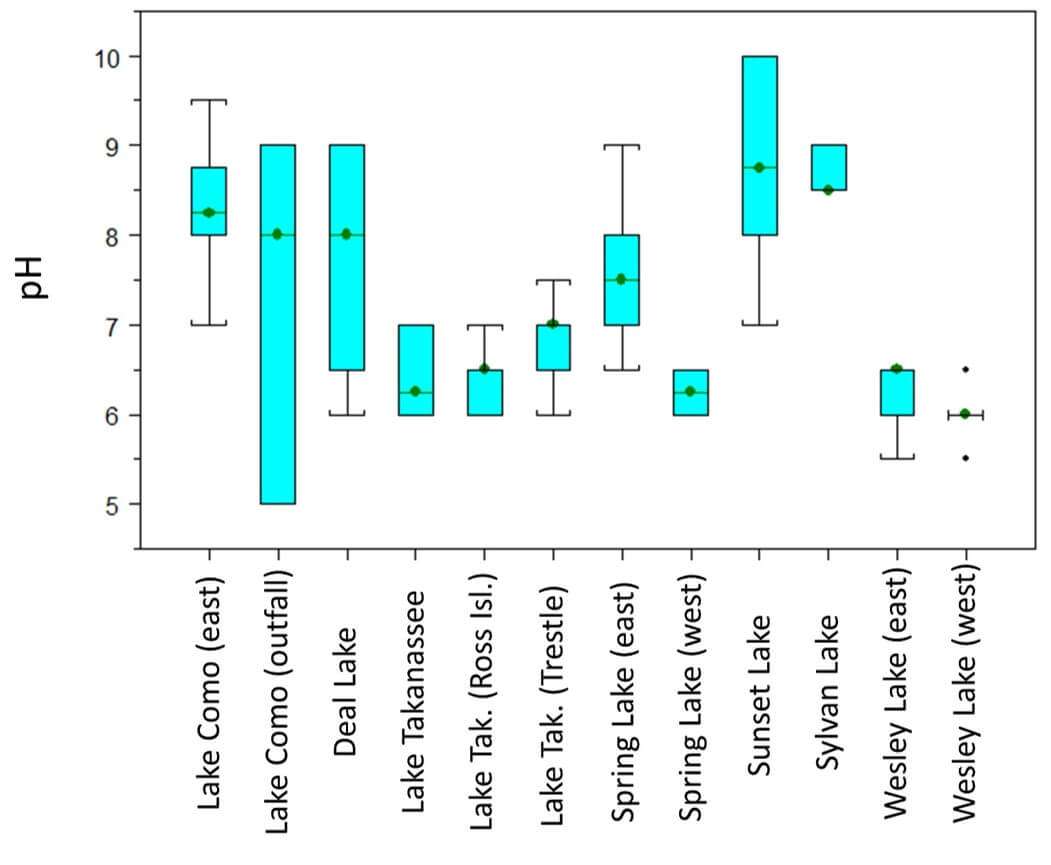
pH levels varied widely among lakes. A lake’s pH range can determine its suitability as a habitat for wildlife species. For example, those with low pH (high acidity) are not favorable for animals such as turtles, which can struggle to grow and maintain healthy shells, while frogs and fish such as trout and pike prefer such environments. The testing indicated Spring Lake, Wesley Lake and Lake Takanassee had low pH while Sunset Lake and Sylvan Lake were on the higher end of the spectrum.
To view additional results, download the presentation slides from Adolf and UCI Associate Director Thomas Herrington.
Sampling will continue in the fall and winter months and through next year. Adolf said the data gathered over the last few months can serve as a baseline that the impacts of specific management and restoration projects can be measured against – for example, lake dredging, the installation of green infrastructure, or housing developments under construction along a lake’s tributaries.
The work is being conducted with grant funding provided by the Jules L. Plangere, Jr. Family Foundation and through a collaboration between Monmouth University and the NJDEP Marine Monitoring Lab at Leeds Point. For more information on CLONet, visit monmouth.edu/clonet.
Polling Institute, UCI Conduct N.J. Ocean Plastics Survey and Panel
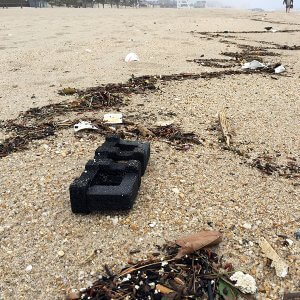 Most New Jerseyans initially support a single-use plastic bag ban, but many back away from that support when considering the impact on consumer shopping habits, according to a Monmouth University Poll conducted in partnership with the Urban Coast Institute (UCI). The vast majority of Garden State residents say that ocean pollution caused by plastics is a serious problem, but few have heard much about the issue of microplastics in the environment.
Most New Jerseyans initially support a single-use plastic bag ban, but many back away from that support when considering the impact on consumer shopping habits, according to a Monmouth University Poll conducted in partnership with the Urban Coast Institute (UCI). The vast majority of Garden State residents say that ocean pollution caused by plastics is a serious problem, but few have heard much about the issue of microplastics in the environment.
Nearly 2-in-3 New Jerseyans (65%) claim to support a ban on single use plastic bags, while 29% are opposed. Just over half (52%) also say they support a ban on plastic straws, with 44% of state residents opposing this. However, support for a plastic bag ban appears to be less absolute when residents are presented with specific ways this could be handled. When given a number of options, just 31% want a complete ban on single use plastic bags, while 27% say that customers should pay a small fee if they want a plastic bag when shopping. Another 39% of state residents feel that stores should continue to have the option to give away plastic bags for free. Read the full results of the poll.
The Polling Institute and UCI hosted an Oct. 2 panel event, “Marine Plastics: Law, Science and Action,” to discuss the issue and the poll’s implications in further detail (video below). The event assembled experts from the legal, scientific, and grassroots activism communities and focused on challenges and potential solutions for New Jersey. The panel discussion featured University of New England Professor Susan Faraday; Rutgers University Professor Keith Cooper; Clean Ocean Action Executive Director Cindy Zipf; and Polling Institute Director Patrick Murray, who served as moderator. UCI Director Tony MacDonald delivered introductory remarks.
Monmouth, Rutgers Deploy Autonomous Gliders for Hurricane Research
Step aboard the R/V Heidi Lynn Sculthorpe as UCI Marine Scientist Jim Nickels, Monmouth University student Bryce McCall, and Rutgers University scientists Scott Glenn and Travis Miles deploy a pair of U.S Navy gliders off the New Jersey coast. The gliders’ mission was to cruise the New York Bight during the hurricane season, gathering data on the interactions between water conditions and storms, with the ultimate goal of improving storm modeling. Additional project partners include the Mid-Atlantic Regional Association Coastal Ocean Observing System (MARACOOS), the Integrated Ocean Observing System (IOOS) and the National Oceanic and Atmospheric Administration (NOAA).
Prof. Abate Delivers Endowed Chairs Lecture Series Talk on Climate Change and the Voiceless
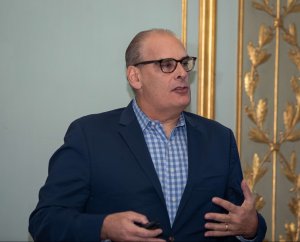 Randall S. Abate, professor in the Department of Political Science and Sociology and Rechnitz Family/Urban Coast Institute Endowed Chair in Marine and Environmental Law and Policy, delivered the first of this year’s endowed chairs lecture series entitled, “Climate Change and the Voiceless: Protecting Future Generations, Wildlife, and Natural Resources.”
Randall S. Abate, professor in the Department of Political Science and Sociology and Rechnitz Family/Urban Coast Institute Endowed Chair in Marine and Environmental Law and Policy, delivered the first of this year’s endowed chairs lecture series entitled, “Climate Change and the Voiceless: Protecting Future Generations, Wildlife, and Natural Resources.”
The lecture, sponsored by the Monmouth University Council of Endowed Chairs, gets its name directly from Abate’s new book, published in October by Cambridge University Press, and explores how the law, through the context of climate change, can evolve to protect the interests of three seemingly unrelated groups, which Abate refers to collectively as “the voiceless.” Read the full article at Monmouth Now.
Abate also discussed the topic as a featured guest on the Sept. 13 edition of the Green Inside and Out radio show on WUSB in Stony Brook, N.Y. Visit https://greeninsideandout.org/episodes/ to hear the interview.
Monmouth University Recognized as New Jersey Recycling Leader
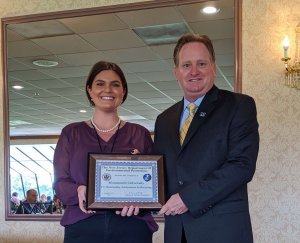 Monmouth University was among nine businesses, organizations, and individuals recognized at the 39th Annual Association of New Jersey Recyclers symposium held Oct. 10 at the Jumping Brook Country Club in Neptune, New Jersey. The university was recognized as an institutional leader for its broad-based program that resulted in recycling 46% of the waste generated on campus in 2018.
Monmouth University was among nine businesses, organizations, and individuals recognized at the 39th Annual Association of New Jersey Recyclers symposium held Oct. 10 at the Jumping Brook Country Club in Neptune, New Jersey. The university was recognized as an institutional leader for its broad-based program that resulted in recycling 46% of the waste generated on campus in 2018.
UCI Associate Director Thomas Herrington, the co-chair of the university’s Sustainability Advisory Council, is seen here accepting the award on Monmouth’s behalf. Read the full story at Monmouth Now.
MacDonald to Participate in White House Ocean Summit
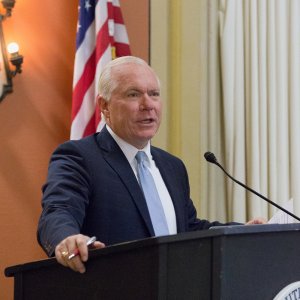 UCI Director Tony MacDonald will head to Washington, D.C., on Thursday to participate in a daylong White House Summit on Partnerships in Ocean Science and Technology. The summit will assemble national leaders in marine science and policy for discussions on topics including ocean exploration and mapping, conservation of marine resources, coastal protection, food security, ocean energy, scientific observation and data collection.
UCI Director Tony MacDonald will head to Washington, D.C., on Thursday to participate in a daylong White House Summit on Partnerships in Ocean Science and Technology. The summit will assemble national leaders in marine science and policy for discussions on topics including ocean exploration and mapping, conservation of marine resources, coastal protection, food security, ocean energy, scientific observation and data collection.
Featured federal speakers will include Kelvin Droegemeier, director of the White House Office of Science and Technology Policy; Mary Neumayr, chair of the White House Council on Environmental Quality; and Tim Gallaudet, deputy administrator of the National Oceanic and Atmospheric Administration (NOAA).
MacDonald was also in the nation’s capital this week for a meeting of the National Academies of Sciences, Engineering, and Medicine’s Ocean Studies Board (OSB), on which he serves as a member.
Haak Joins UCI as Postdoctoral Researcher
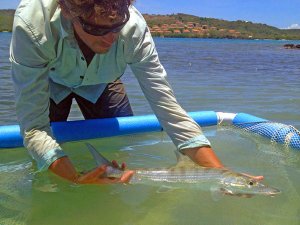 The UCI welcomes Christopher Haak as a postdoctoral researcher focused on fisheries science. In this role, Haak will split time working at the National Oceanic and Atmospheric Administration’s (NOAA) James J. Howard Laboratory in Sandy Hook and the Monmouth University campus.
The UCI welcomes Christopher Haak as a postdoctoral researcher focused on fisheries science. In this role, Haak will split time working at the National Oceanic and Atmospheric Administration’s (NOAA) James J. Howard Laboratory in Sandy Hook and the Monmouth University campus.
Working with a team of NOAA National Marine Fisheries Service researchers, Haak will develop habitat use models for a diverse group of commercially and ecologically important fish species across the Northeast and Mid-Atlantic continental shelf. The goal of the team’s work is to predict future shifts in species distributions due to environmental change.
After an Emmy-winning career in film and television, Haak shifted gears to follow his lifelong passion for the oceans, pursuing his Ph.D. in marine science at UMass Amherst. There, his research focused on bonefish and other species occupying shallow nearshore habitats in the Bahamas and Puerto Rico, which he used as a model for examining a diverse range of ecological questions.
Among these, Haak’s principal research interests comprise two areas of study: the often-overlooked effects of hydrodynamic factors, such as wave and tide-driven water movement, on the habitat use patterns and distributions of fishes; and the similarly under-appreciated role of species interactions, in particular sociality and interspecific information use, in structuring fish communities. In studying these phenomena, Haak hopes to better understand and/or predict the ways that different species and assemblages thereof will respond to a changing world.
Article Examines Case for Children’s Right to a Stable Climate System
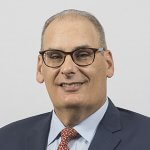 Rechnitz Family/UCI Endowed Chair in Marine and Environmental Law and Policy Randall S. Abate drafted an article in the summer 2019 issue of the George Washington Journal of Energy and Environmental Law, published in September. The article, “Atmospheric Trust Litigation: Foundation for a Constitutional Right to a Stable Climate System?,” analyzes the viability of Juliana v. United States, the world-famous climate justice case pending in federal court that involves several youth plaintiffs from around the nation seeking to compel the federal government to regulate climate change.
Rechnitz Family/UCI Endowed Chair in Marine and Environmental Law and Policy Randall S. Abate drafted an article in the summer 2019 issue of the George Washington Journal of Energy and Environmental Law, published in September. The article, “Atmospheric Trust Litigation: Foundation for a Constitutional Right to a Stable Climate System?,” analyzes the viability of Juliana v. United States, the world-famous climate justice case pending in federal court that involves several youth plaintiffs from around the nation seeking to compel the federal government to regulate climate change.
The summer 2019 issue of the journal also features articles from nationally recognized environmental law professors from Lewis and Clark Law School and Florida State College of Law, two of the nation’s top environmental law programs.
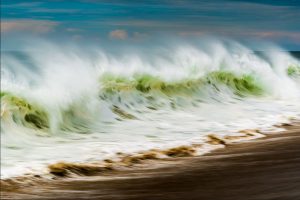 New: Coastal & Ocean News Links
New: Coastal & Ocean News Links
As a service to readers, the UCI has created a new Coastal & Ocean News Links page, containing a digest of the latest headlines on environmental and policy issues throughout the region. The page will be updated semi-monthly.
Monmouth University Students Clean Up Whale Pond Brook
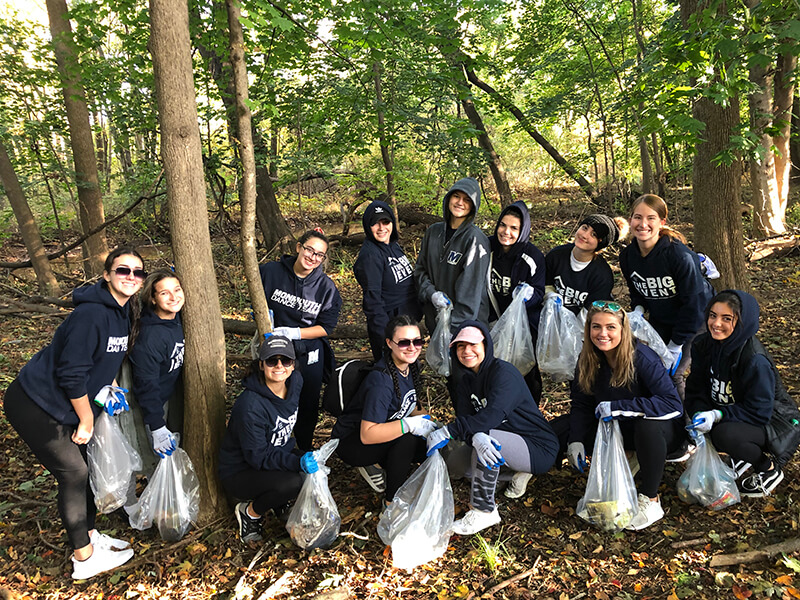
Thanks to the members of the Monmouth University Dance Team (seen here) and others who took part in the Sustainability Advisory Council’s cleanup at Whale Pond Brook on Oct. 26. The cleanup was held in conjunction with the Big Event, the largest community service project that takes place annually at Monmouth.
